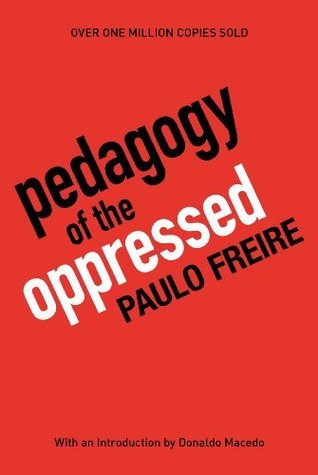
Pedagogy of the Oppressed Summary of Paulo Freire's Book

Pedagogy of the Oppressed by Paulo Freire: A Revolutionary Book in Education and Philosophy
Paulo Freire’s groundbreaking book "Pedagogy of the Oppressed" has had a profound impact on the fields of education, nonfiction, and philosophy since it was first published in Portuguese in 1968. Translated into English in 1970, this book offers a powerful critique of traditional education and proposes a new model of education that emphasizes liberation and empowerment. With its focus on the relationship between oppression and education, "Pedagogy of the Oppressed" continues to be a vital text for educators, students, and anyone interested in social justice.
Characters
The characters in "Pedagogy of the Oppressed" are not traditional characters in the sense of a novel, but rather represent different roles within the educational system. The primary characters in the book are the oppressors and the oppressed. The oppressors are those in power who maintain the status quo through oppressive educational practices, while the oppressed are those who are marginalized and disempowered by the current system. Freire also introduces the concept of the teacher-student, who is able to engage in dialogue and mutual learning with their students, as opposed to the banking model of education where knowledge is deposited into passive students.
Detailed Summary
"Pedagogy of the Oppressed" begins by outlining Freire’s theory of oppression and liberation. He argues that traditional education is based on the banking model, where teachers deposit knowledge into students who are seen as empty vessels. This model reinforces the power dynamics of society, with teachers as the oppressors and students as the oppressed. Freire posits a new model of education that is based on dialogue and mutual learning, where teachers and students work together to critically examine their world and take action to change it.
The book goes on to explore the concept of conscientization, which is the process of developing critical consciousness and awareness of one’s social and political reality. Through dialogue and reflection, individuals are able to understand the causes of their oppression and take action to challenge it. Freire emphasizes the importance of praxis, or action informed by reflection, as a key component of liberation.
In the later chapters of the book, Freire discusses the role of the educator in promoting liberation. He argues that teachers must be willing to engage in dialogue with their students and learn from them, rather than simply imparting knowledge. This approach requires a radical rethinking of the traditional teacher-student relationship and a commitment to social transformation.
Analysis
"Pedagogy of the Oppressed" is a seminal work in the field of critical pedagogy, which aims to challenge oppressive social structures through education. Freire’s concept of dialogue and conscientization has inspired educators around the world to rethink their practices and work towards social justice. His emphasis on praxis and liberation has influenced a wide range of educational movements, from popular education in Latin America to community organizing in the United States.
One of the key strengths of Freire’s work is his emphasis on the interconnectedness of theory and practice. By bringing together philosophy, education, and activism, "Pedagogy of the Oppressed" offers a holistic approach to social change that is rooted in the experiences of the oppressed. This approach has resonated with educators and activists who are working to challenge the status quo and create a more just and equitable society.
Overall, "Pedagogy of the Oppressed" is a powerful and provocative book that continues to have relevance today. As income inequality and social injustice continue to grow, Freire’s ideas offer a path forward for those who are committed to social transformation. By centering the experiences of the oppressed and advocating for dialogue and praxis, Freire challenges us to rethink the role of education in creating a more just world.
Final thoughts
To conclude, "Pedagogy of the Oppressed" is a revolutionary book that has had a lasting impact on the fields of education, nonfiction, and philosophy. Paulo Freire’s insights into the relationship between oppression and education have inspired generations of educators and activists to challenge the status quo and work towards social justice. If you are interested in learning more about Freire’s ideas and how they can be applied in practice, I encourage you to purchase the complete book or listen to the audiobook. "Pedagogy of the Oppressed" is a must-read for anyone who is committed to creating a more just and equitable world.
So, what are you waiting for? Dive into this transformative work and join the movement towards liberation and empowerment for all.
9780826412768 (ISBN10: 0826412769)






Related Books